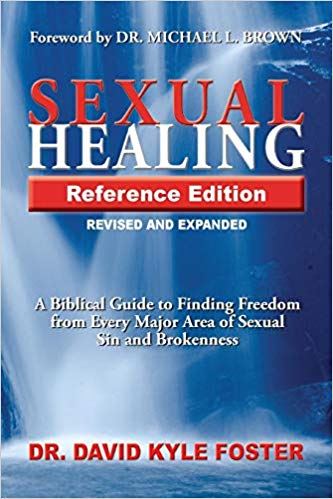Are You Allowing God to Heal You?

As you begin your quest for healing and transformation, it is important not to forget who does the healing (God does), and where the ability to achieve results comes from (it comes from God).
Jesus could not have been more relevant to this issue when He said, “apart from Me you can do nothing!”
The principle of God’s prevenient grace (coupled with our helplessness) saturates the entire Bible.
We learn from Jesus in John 6:44: “No one can come to (Christ) unless the Father draws him,” and in John 6:65: “no one can come to (Christ) unless it has been granted him from the Father” (NASB). Jesus taught that the fact that we believe in Him at all is “the work of God” (John 6:29), that we are, in essence, a gift from the Father to Christ (John 6:37, 39).
Although we understand that we are saved not by our works, but by faith, we often miss the point that even our faith has been given us by the Father:
“It is the gift of God” (Ephesians 2:8).
“We are His workmanship” (Ephesians 2:10, NASB).
“He called us according to His own purpose” (2 Timothy 1:9, NASB).
“By His doing you are in Christ Jesus” (1 Corinthians 1:30).
“It is God who is at work in you, both to will and to work for His good pleasure” (Philippians 2:13, NASB).
Do not think more highly of yourself than you ought to think, for “God has allotted to each man a measure of faith” (Romans 12:3, NASB).
It is “God who works all things in all persons” (1 Corinthians 12:6, NASB).
The apostle Paul made it clear that “by the grace of God I am what I am” and that it was “not I, but the grace of God with me” that labored (1 Corinthians 15:10, NASB).
And again, in Hebrews 13:21, he said that it was Jesus Christ who equipped us to do His will and who “works in us that which is pleasing in His sight.”
The point that I’m trying to make is that if God had not lifted the veil from our eyes and given us the faith to believe, we could never have come to salvation.
And that the same principle—that God is the author, equipper and inspirer of all right action—applies to everything of value that we will ever do, every healing that we will ever obtain, and everything that we will ever become.
It is for that reason that it can be rightly said that all glory and honor belongs to God and God alone. When we cast our crowns before Him in that final day, it will not merely be a gesture of honor; it will be the only right thing to do!
Therefore, it is incumbent upon us, as we pursue healing, to reject the tendency toward self-effort and self-striving and instead allow God to bring about change.
When we try to heal ourselves (even using God’s tools), or worse yet, when we try to create our own tools for healing (even those based on biblical models), we stand in the way of God’s healing.
For if we succeed in some measure to heal ourselves, God cannot receive the glory. This is a critical point to understand because it is the very purpose of creation to bring glory to the One who died for us.
Additionally, any healing wrought in such a deficient fashion will, by virtue of the fact that the construction was done by us rather than God, eventually collapse, if not sooner, certainly at the last day when God burns everything that has not been wrought by Him (1 Corinthians 3:10-15).
If God alone is capable of doing these things, where does that leave us? Are we to simply do nothing and wait for Him to bring these things about? Of course not!
We need to turn our attention to Him, actively recognizing that He is our source for every good thing.
We must learn, habitually and with all dependence, to fix our gaze upon Him. As Westerners, it kind of rubs us the wrong way to submit to the concept of complete dependence on God, or on anyone for that matter. It is un-American. It is weak, and it conflicts with our strong independent spirits.
It requires a level of humility that we never even dreamed existed, much less considered a virtue. In a society such as our own that is ruled by the philosophy of humanism (there is nothing greater than man), humility is indeed a weakness.
However, once we have discovered that there is a Creator God Who is far greater than man, humility then becomes wisdom.
After turning a dependent heart toward the Lord, we must, with all diligence, ask Him to accomplish good things in us.
Then we need to step out of the way to let Him do it.
It might be good to ask yourself, “Where am I stuck?” Perhaps you don’t even want to seek after God with all your heart. The Bible is very clear that it is those who diligently seek Him who receive a response from Him (Hebrews 11:6; Jeremiah 29:13).
For you, I would recommend beginning where you are; ask God to give you the desire that you lack, knowing that it is God who works in us the desire to do His will (Philippians 2:12-13).
This is more important than we may realize because if we pray for things simply because we know that we are “supposed” to pray for them, but we don’t really want them deep down in our heart, or don’t really expect that God will give them to us, then we will never get anywhere.
For many of us, a simple prayer of “HELP!” is what is needed.
Do it; it works!
All of us can benefit from a closer and more intimate relationship with the Lord. So, why not pray that God will begin to reveal those things about Himself that will uniquely inspire you to go further with Him.
Be persistent! Don’t stop praying for these things until you get them! It is when you want healing with all your heart that the Father is pleased to give it to you.
Understand the “pearls before swine” principle.
God’s actions are always purposeful. They expect a response. If you are not willing to comply with the requirements that accompany the help that you seek, don’t expect that God will answer your prayer.
For example, don’t expect God to give you the supernatural grace to overcome a sinful compulsive behavior if, when He imparts the necessary grace, you are unwilling to stop pursuing that behavior.
I call this the “pearls before swine” principle. In Matthew 7:6, Jesus suggested that we not give what is precious to those who do not yet regard it as precious.
God will not impart to us the power to be holy until we have come to appreciate the value of such a gift. His Son bled and died for the grace that we seek, and so the Father treats it as a pearl of great price and will not toss it to those who will only trample it underfoot.
Instead, He waits until we have learned to value it enough to hold on to it and to permanently integrate it into our lives once it has been given.
You will always be left with the choice of whether to stop a sinful behavior or not, even after the grace has been given to stop.
That is when you may discover that although you thought you were serious about wanting the purity of Christ in place of the sinful habit, you really didn’t want complete victory after all.
Until you are ready to respond in faith to God’s offer of aid, your fervent prayer should be for a greater revelation of Who Christ is and a more complete desire to be like Him. Then, the next time the grace is given, you will gladly cling to it as the precious treasure that it is.
Thus, it is in the context of seeking God and responding to Him with all your heart—by His empowerment—that the admonition to “let God do it” makes sense. Only in that atmosphere of hunger, dependency, and willingness to obey will God impart His holiness, reveal His perfect will, and entrust to you the power to overcome the evil one in your life. Then and only then can you be an effective channel of His blessing to others who are in the process of seeking to become more like Him, but who may be at a weak moment in their journey.
These are principles that undergird everything that is said in this excerpt from the Sexual Healing Reference Edition. They must be buried deep into your heart so that they become a natural part of you. Even that can only be achieved by God Himself, which brings us full circle to the fundamental principle for all Christian growth and healing—that we must fix our hope and our attention on God and, diligently and with all our heart, beseech Him to bring these things about in our lives.
This adapted excerpt was taken from Dr. David Kyle Foster’s book, The Sexual Healing Reference Edition. Used with permission.

Photo Credit: ©Unsplash/PhotobyZacDurant
Originally published April 26, 2019.







